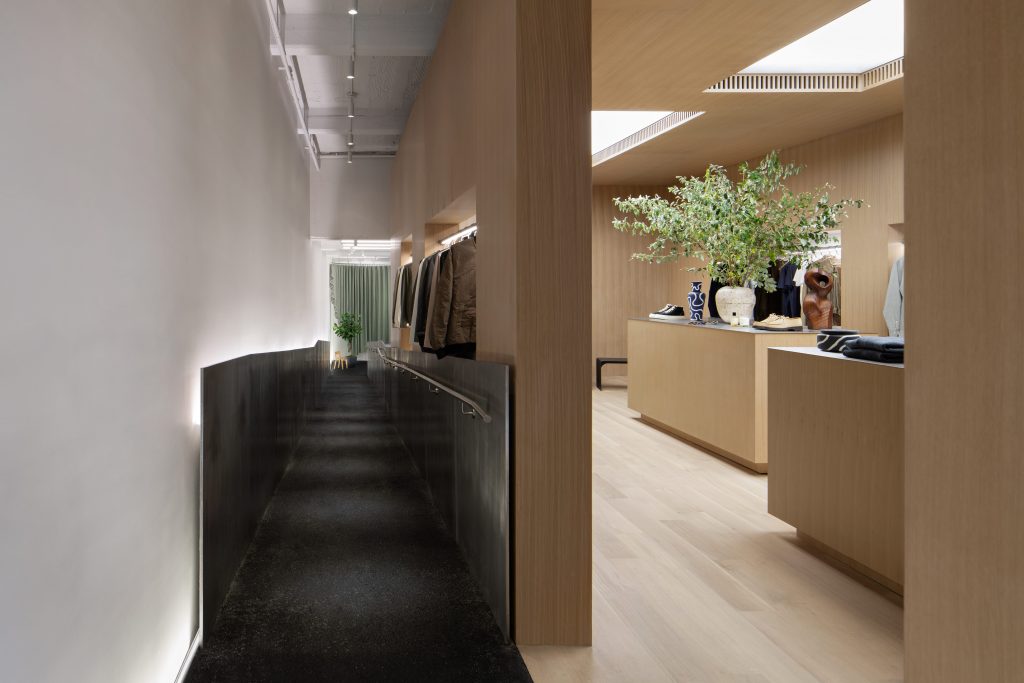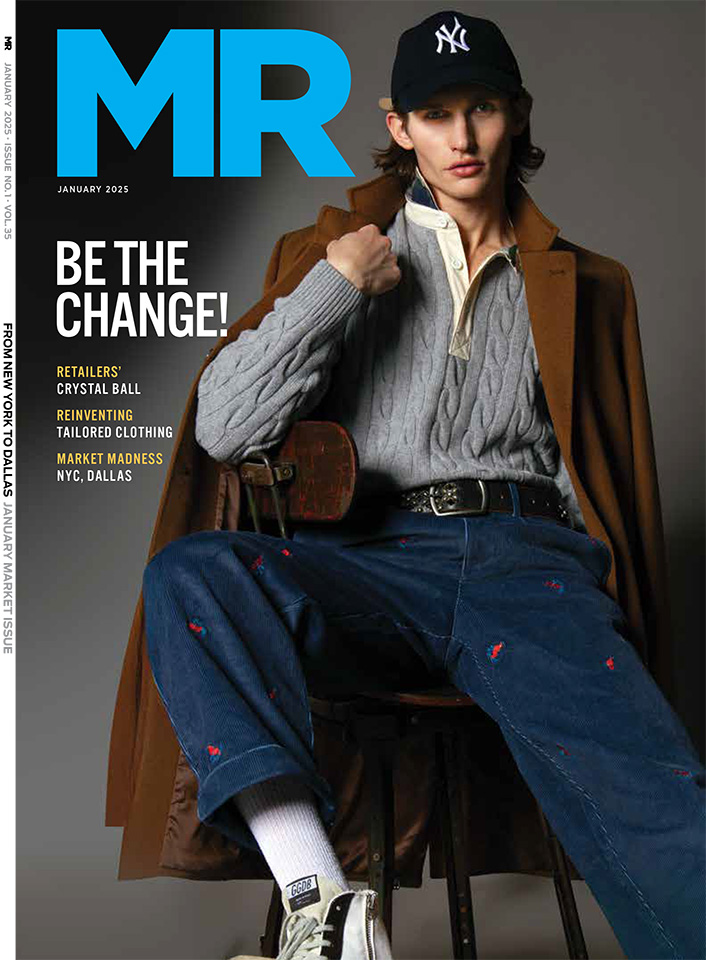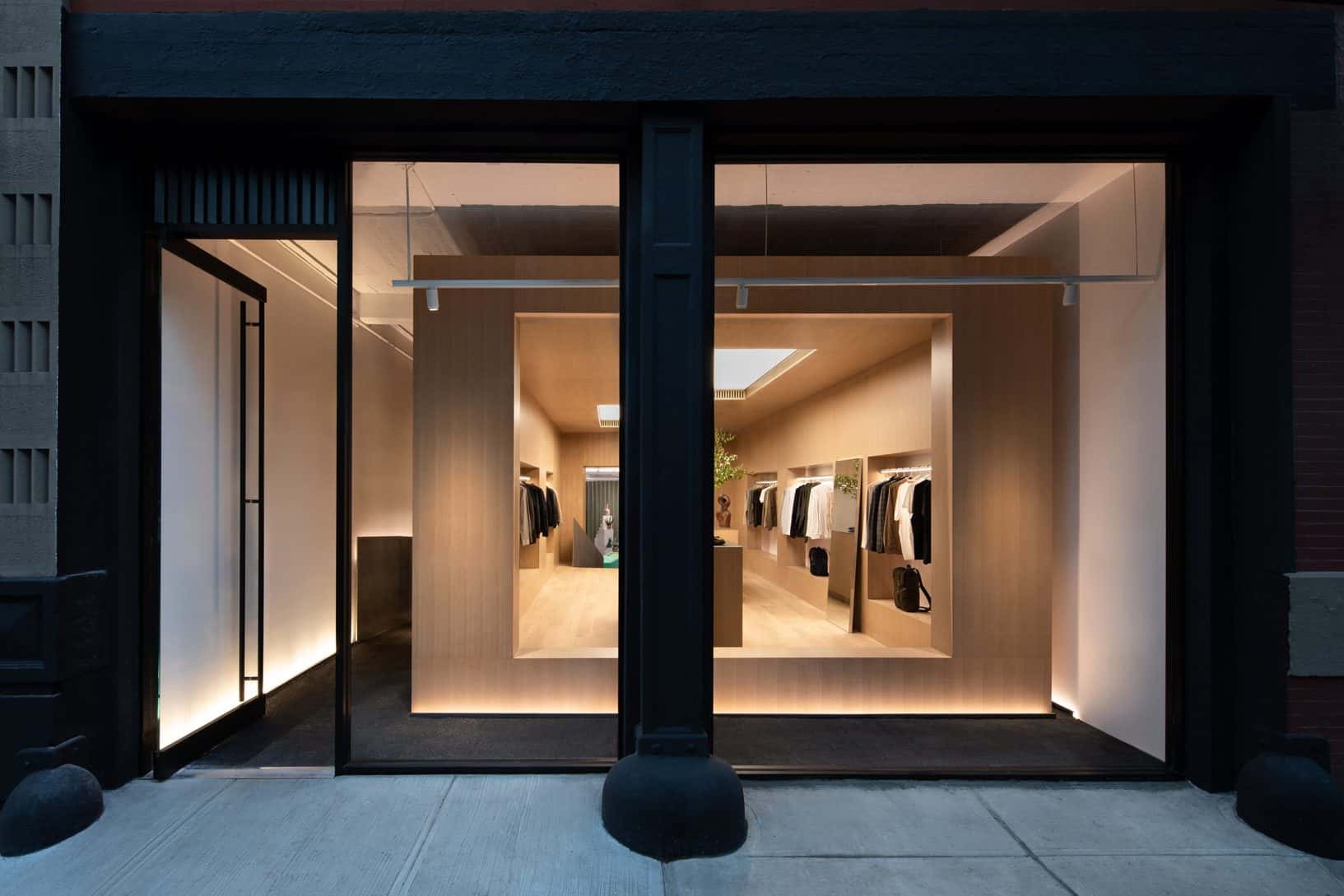O.N.S TO OPEN NEW NOLITA FLAGSHIP THIS WEEK

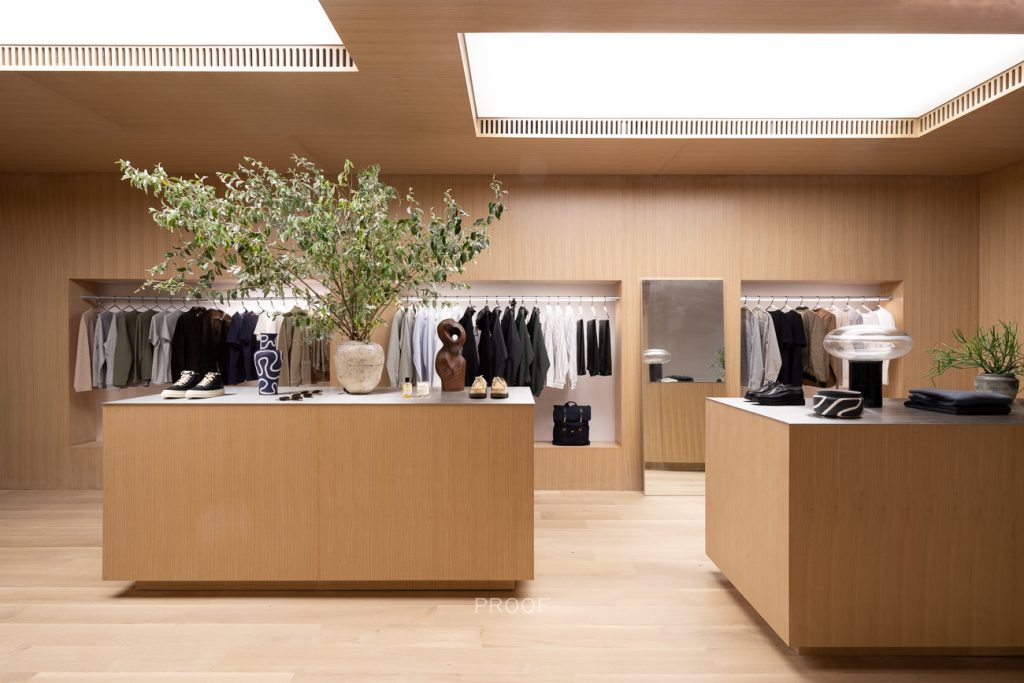
O.N.S is set to open its new flagship store on Friday in the Nolita neighborhood of Manhattan.
The 2,700-square-foot store at 201 Mulberry Street was designed by Hong Kong-based agency Collective and New York-based Tang Kawasaki Studio handled the execution of the store. The team worked with the space originally built as a garage, employing innovative plant-based asphalt as a retail floor – the first of its kind – continuing the urban street, drawing visitors directly from the exterior into a dynamic store environment.
The interior architecture places emphasis on a new retail concept of flexibility and transformation, with a 100-foot-long movable wall covered with wool; 65 feet of custom stainless steel ramps and stairs to create a five-foot change in the level of the store; custom cast resin furniture by Facture Studio; Italian tile for the fitting rooms designed by Ronan and Erwan Bouroullec, and a custom fiberglass sculpture created by a New York yacht-building workshop.
O.N.S., which stands for One Nice Shirt, was founded by Brian Chung, whose family is in the apparel manufacturing and textile development business in Hong Kong. He created the brand around six years ago out of a need for a wardrobe that felt comfortable and sophisticated at the same time.
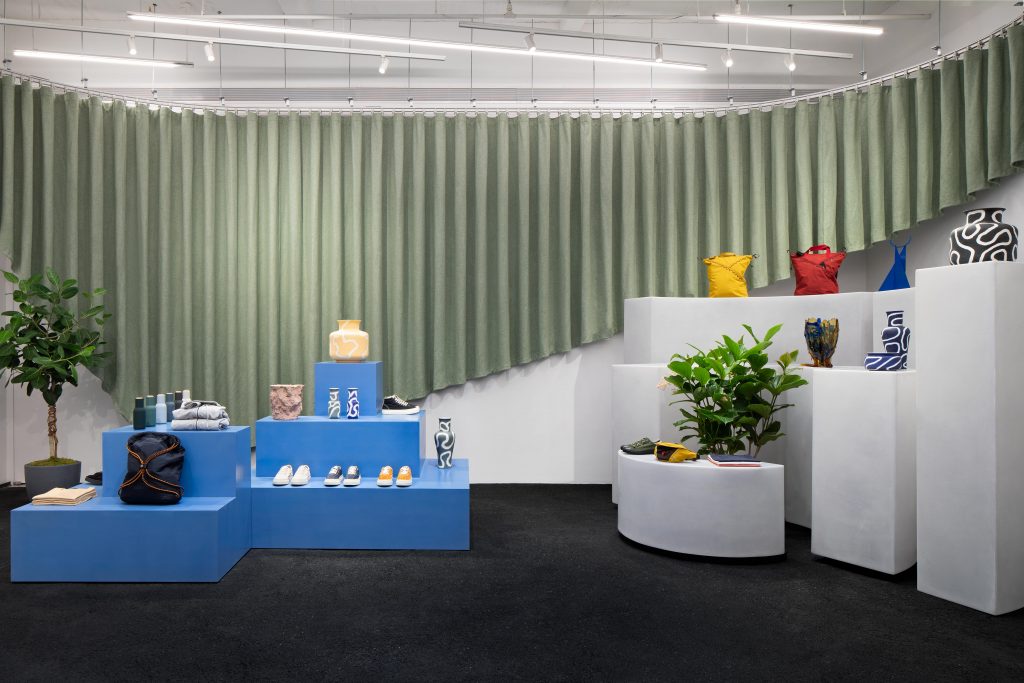
For the past several years, O.N.S. had operated a store on Greene Street as well as a couple of pop-ups in SoHo and the Lower East Side.
To no surprise, it has been difficult to launch the store due to the circumstances, but the menswear brand has been navigating the store opening as best it can, keeping in mind the safety and well-being of its employees and customers. The project is about a year and a half in the making and despite the setbacks the brand is almost ready to open its new space to the public by appointment.
“It was a humbling experience, to say the least, because all the plans went out the door once lockdown went into effect,” Chung tells MR. “Everything we learned in project management was sidelined. Vendor availability became scarce because of the reduction of the global supply chain, lead times were pushed back and even manpower was not available. All our construction workers are Chinese, they had faced racial discrimination because of the virus, and that led to them being apprehensive to work. My role from project management eventually became more emotional support, keeping morale high, keeping productivity going, and ensuring safety measures were at the top of the priority list.”
He adds: “My personal perspective on planning has significantly changed. Plans should be flexible but planning will always be crucial so that all concerns are met. It just so happens the world faced it’s biggest unprecedented challenge of our lifetime at the same time.”
